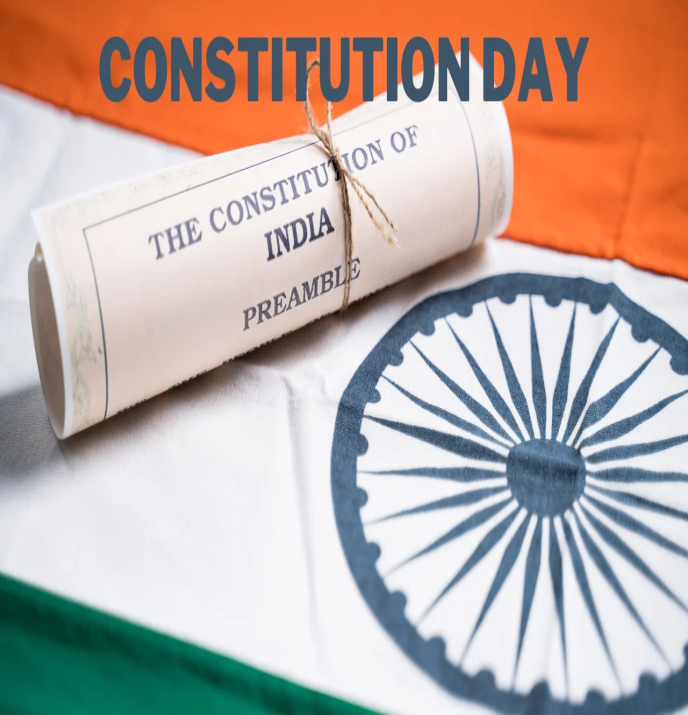Constitution Day 2024: Celebrations and National Significance
Why in the news?
The 75th anniversary of India’s Constitution is marked with nationwide events, including special ceremonies, a commemorative portal, and statements emphasizing its importance for social justice and democracy.
Key Highlights:
- Leadership Participation: President Droupadi Murmu led the celebrations at the Central Hall of the old Parliament complex to mark the 75th anniversary of India’s Constitution. Prime Minister Narendra Modi, Vice President Jagdeep Dhankhar, and Lok Sabha Speaker Om Birla also participated.
- Special Commemorations: The government launched a commemorative website, encouraging citizens to read and upload videos of the Preamble, offering certificates. Mass readings of the Preamble are being held in schools across the nation.
- New Releases: To mark the occasion, the government issued a special coin and stamp.
Constitution Day of India 2024: Origin & Significance
Origin:
- Celebrates the adoption of the Indian Constitution on 26th November 1949, effective from 26th January 1950.
- Drafted under the leadership of Dr. B.R. Ambedkar.
Significance:
- Honoring Leaders: Pays tribute to the Constituent Assembly members and Dr. Ambedkar for drafting the Constitution.
- Upholding Values: Celebrates core principles like democracy, justice, equality, and liberty enshrined in the Constitution.
- Spreading Awareness: Promotes understanding of citizens’ rights and duties.
- Inspiring Future Generations: Encourages youth to value constitutional values and contribute to a just society.
Key Aspects of the Indian Constitution:
- Framing Authority: Constituent Assembly formed in 1946 under the Cabinet Mission Plan.
- Committees: 13 committees formed, with B.R. Ambedkar chairing the drafting committee.
- Adoption & Effect: Adopted on November 26, 1949; came into effect on January 26, 1950.
Key Features:
- Federal system with a unitary bias.
- Parliamentary system ensuring executive accountability.
- Fundamental Rights and Duties, Directive Principles of State Policy.
- Amendment procedure to adapt to changes.
Unique Features:
- Blend of rigidity and flexibility.
- Secular, social justice framework with emergency provisions.
- Independent judiciary and secular principles.
- Preamble: Enshrines justice, liberty, equality, and fraternity for all citizens.
Sources Referred:
PIB, The Hindu, Indian Express, Hindustan Times




